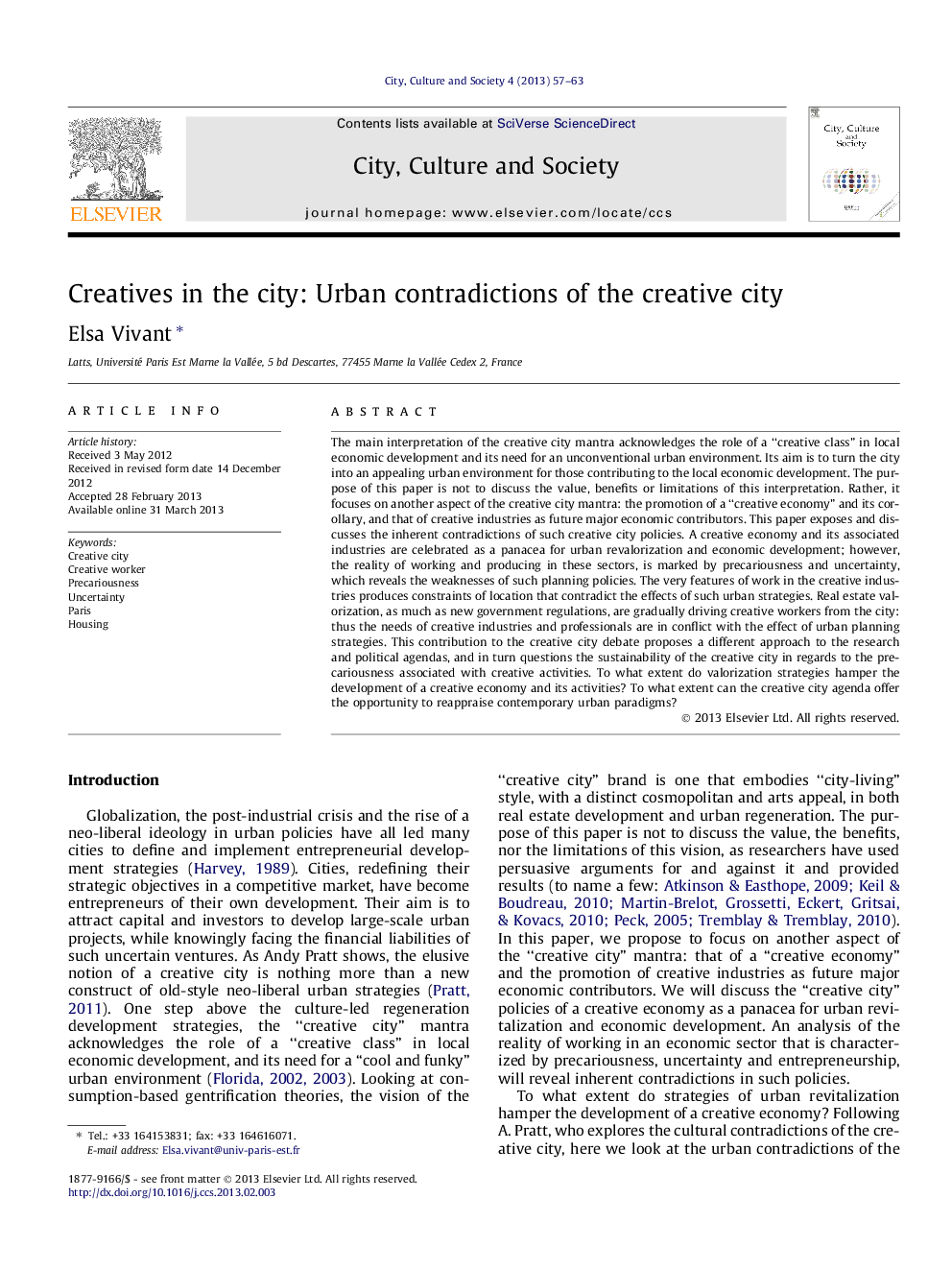| Article ID | Journal | Published Year | Pages | File Type |
|---|---|---|---|---|
| 5048370 | City, Culture and Society | 2013 | 7 Pages |
â¢Neoliberal urban strategies and their creative version.â¢State-of-the art on creative work and conditions of work in creative industries.â¢Various needs of space of creative professionals (production, consumption, commercialization, housing).â¢Urban contradictions of creative city strategies: valorization of urban space hamper the development of creative activities.â¢The urge for a new and democratic understanding of the creative city.
The main interpretation of the creative city mantra acknowledges the role of a “creative class” in local economic development and its need for an unconventional urban environment. Its aim is to turn the city into an appealing urban environment for those contributing to the local economic development. The purpose of this paper is not to discuss the value, benefits or limitations of this interpretation. Rather, it focuses on another aspect of the creative city mantra: the promotion of a “creative economy” and its corollary, and that of creative industries as future major economic contributors. This paper exposes and discusses the inherent contradictions of such creative city policies. A creative economy and its associated industries are celebrated as a panacea for urban revalorization and economic development; however, the reality of working and producing in these sectors, is marked by precariousness and uncertainty, which reveals the weaknesses of such planning policies. The very features of work in the creative industries produces constraints of location that contradict the effects of such urban strategies. Real estate valorization, as much as new government regulations, are gradually driving creative workers from the city: thus the needs of creative industries and professionals are in conflict with the effect of urban planning strategies. This contribution to the creative city debate proposes a different approach to the research and political agendas, and in turn questions the sustainability of the creative city in regards to the precariousness associated with creative activities. To what extent do valorization strategies hamper the development of a creative economy and its activities? To what extent can the creative city agenda offer the opportunity to reappraise contemporary urban paradigms?
